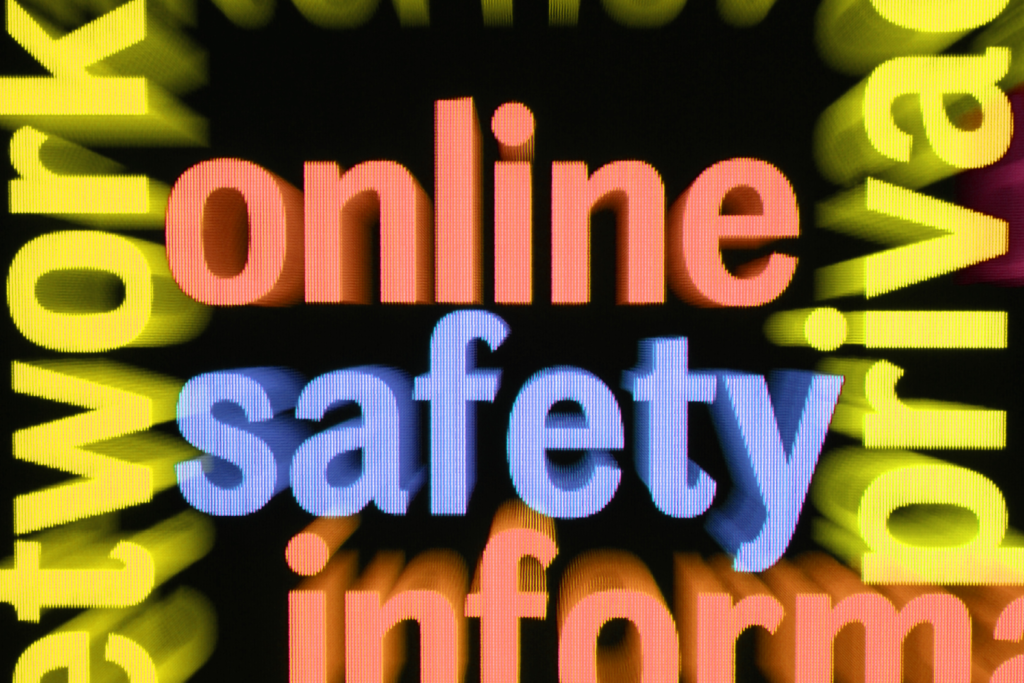
Internet Safety Tips for Seniors

Internet Safety Tips for Seniors are more important than ever in our digital age. You might be new to the internet or an experienced user. Either way, it’s crucial to know how to stay safe online. Scammers and hackers are constantly finding new ways to trick people. But don’t worry! We’ve got some great tips to help you navigate the internet safely and enjoyably.
Table of Contents
- Understanding Common Online Threats
- Secure Your Devices
- Be Smart with Emails
- Safe Browsing Practices
- Social Media Safety
- Protect Your Financial Information
- Recognizing and Avoiding Scams
- Learn to Spot Fake News
- Stay Informed and Educated
- Create a Safety Plan
- Encourage Safe Practices Among Peers
- Stay Positive and Enjoy the Internet
- Conclusion

Understanding Common Online Threats
First, let’s talk about the common online threats you might encounter. Knowing what to look out for is the first step in protecting yourself.
Phishing Scams
Phishing scams are emails or messages that look like they’re from a trusted source. They usually ask for personal information like your bank details or passwords. Always be cautious of unsolicited emails asking for your personal information.
Malware and Viruses
Malware and viruses are harmful software that can damage your computer or steal your information. They often come from downloading suspicious files or clicking on unsafe links. Ensure your computer has up-to-date antivirus software to protect against these threats.
Identity Theft
Identity theft occurs when someone steals your personal information to commit fraud. Be careful about the information you share online, especially on social media and unfamiliar websites.
Secure Your Devices
Keeping your devices secure is essential. Here’s how you can do it:
Use Strong Passwords
A strong password is your first line of defence. Create passwords that are at least eight characters long and include numbers, symbols, and both uppercase and lowercase letters. Avoid using easily guessed passwords like “123456” or “password.”
Enable Two-Factor Authentication
Two-factor authentication adds an extra layer of security. Even if someone gets your password, they’ll need a second piece of information to access your accounts. Most major websites offer this feature.
Update Your Software Regularly
Software updates often include security patches that protect against new threats. Make sure your operating system, browsers, and antivirus software are always up to date.
Be Smart with Emails
Email is a common way for scammers to reach you. Here’s how to handle your emails safely:
Don’t Open Unknown Emails
If you receive an email from an unknown sender, it’s best not to open it. It could be a phishing attempt. Delete suspicious emails immediately.
Verify Before Clicking
Before clicking on any link in an email, verify the sender. Hover over the link to see the actual URL. If it looks suspicious, don’t click.
Be Wary of Attachments
Attachments can contain malware. Only open attachments from trusted sources and, even then, scan them with your antivirus software first.
Safe Browsing Practices
Browsing the internet safely is crucial. Here are some tips:
Use Secure Websites
When shopping or entering personal information, make sure the website is secure. Look for “https://” at the beginning of the web address and a padlock icon.
Avoid Public Wi-Fi for Sensitive Transactions
Public Wi-Fi networks are often not secure. Avoid logging into your bank account or shopping online while using public Wi-Fi.
Be Cautious with Pop-Ups
Pop-up ads can be annoying and dangerous. They might contain malware. Install a pop-up blocker to avoid these risks.
Social Media Safety
Social media is a great way to stay connected with friends and family. However, it’s important to use it safely.
Limit Personal Information
Be careful about the personal information you share. Avoid posting your address, phone number, or details that could be used to steal your identity.
Adjust Privacy Settings
Review and adjust the privacy settings on your social media accounts. Make sure you know who can see your posts and information.
Be Skeptical of Friend Requests
Be cautious when accepting friend requests, especially from people you don’t know. Scammers often create fake profiles to gain access to personal information.
Protect Your Financial Information
Your financial information is a prime target for scammers. Here’s how to protect it:
Monitor Your Accounts Regularly
Keep an eye on your bank and credit card statements. Report any suspicious activity to your bank immediately.
Use Credit Cards Over Debit Cards
Credit cards offer better fraud protection than debit cards. If your credit card information is stolen, it’s easier to resolve the issue.
Beware of Financial Scams
Be sceptical of emails or calls asking for financial information. Legitimate companies will never ask for sensitive information this way.
Recognizing and Avoiding Scams
Scammers are always coming up with new tricks. Here are some common scams and how to avoid them:
Tech Support Scams
Scammers might call pretending to be tech support, claiming your computer has a virus. Hang up and never give them remote access to your computer.
Lottery and Prize Scams
You might receive a message saying you’ve won a prize or lottery. If you didn’t enter, it’s likely a scam. Don’t provide personal information or pay any fees.
Charity Scams
Scammers often pose as charities, especially after natural disasters. Research the charity before donating to ensure it’s legitimate.
Learn to Spot Fake News
Fake news is rampant on the internet. Knowing how to spot it is vital:
Check the Source
Consider the source of the news. Reputable news organizations are more likely to provide accurate information.
Look for Evidence
Reliable news articles provide evidence and cite sources. Be wary of articles with vague information or that don’t cite sources.
Verify with Other Sources
Cross-check information with other reputable sources. If multiple trusted sources report the same news, it’s more likely to be true.
Stay Informed and Educated
Staying informed about the latest internet safety practices is essential:
Take Online Safety Courses
Many organizations offer free online safety courses for seniors. These courses can provide valuable information and practical tips.
Join Online Communities
There are online communities where you can share tips and experiences about internet safety. These communities can offer support and advice.
Stay Updated on Scams
Regularly check websites like the Federal Trade Commission (FTC) or AARP for updates on common scams and internet safety tips.

Create a Safety Plan
Having a plan in place can help you stay safe online:
Set Up Emergency Contacts
Have a list of contacts you can reach out to if you encounter a problem online. This could include family members or trusted friends.
Keep Important Information Secure
Store important documents and information securely. This includes passwords, bank information, and identification documents.
Know How to Report Issues
Familiarize yourself with how to report scams or fraud. Knowing the process can help you act quickly if needed.
Encourage Safe Practices Among Peers
Sharing your knowledge can help others stay safe online:
Talk to Friends and Family
Discuss internet safety tips with your friends and family. Share what you’ve learned to help them stay protected.
Organize Safety Workshops
Consider organizing workshops or talks about internet safety in your community. These can be great opportunities to learn and share experiences.
Lead by Example
By practising good internet safety habits, you can set a positive example for others.
Stay Positive and Enjoy the Internet
The internet offers incredible opportunities for learning, connecting, and having fun. Here’s how to enjoy it safely:
Explore New Interests
The internet is full of resources to explore new hobbies and interests. Join online classes or groups to meet like-minded people.
Connect with Loved Ones
Use social media and video calls to stay in touch with family and friends. These tools can help you feel closer, even from a distance.
Stay Curious and Informed
Keep an open mind and stay curious. The more you learn about internet safety, the better equipped you’ll be to enjoy the online world.

Conclusion
In conclusion, internet safety is essential for seniors. By following these tips, you can protect yourself from common online threats. Remember to use strong passwords, be cautious with emails, and secure your personal information. Stay informed about the latest scams and always verify information before taking action. With these practices, you can enjoy the many benefits of the internet while staying safe. So go ahead, explore, connect, and have fun online—safely!

























